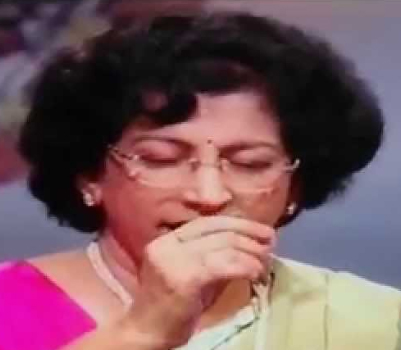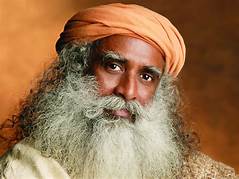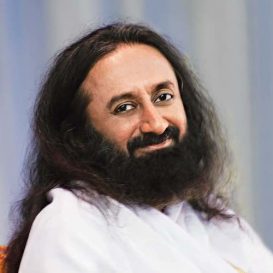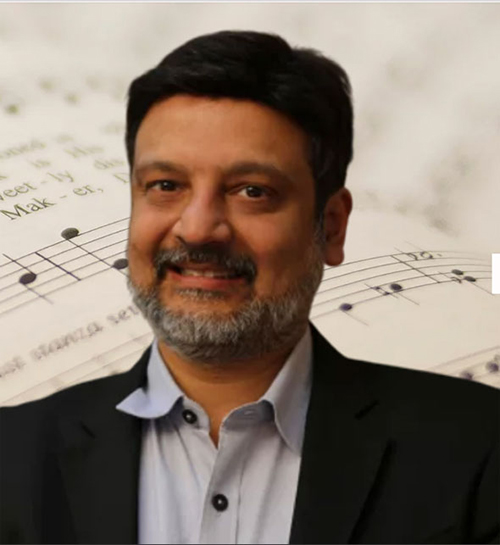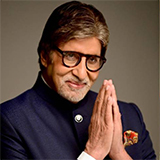 |
|
| Global
examples |
In
each social issues forum, we share Global Examples
|
|
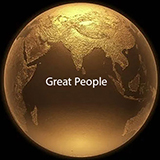 |
|
| Social
Gods |
In
each social issues forum, we share SOCIAL GODS in
each issue
|
|
 |
|
| Challenges |
In
each social issues forum, we share challenges the
issue faces and these are same but dimension varies
from country to country
|
|
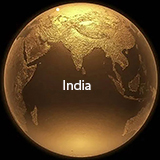 |
|
| India
& Thane |
We
started with the idea on a portal in Thane in
1999 and our
first social enterprise on India in 1999.
So Thane and India are our global examples.
|
|
|
Between 1901 to 2025,
world has only 1036 Nobel Laureates (633 times,
28 organisations, rest is individuals).
All (including us) think they are greats.
Similarly, world had many great scientists &
inventors.
Even for heart attack, there is operation &
medicines .
But no one has yet discovered a medicine where everyone
in the world gets education or last stage cancer
is removed or HIV as a dieases is dead.
Social doctors try to address challenges.
But removing poverty is not possible to them.
Or removing illiteracy is not possible at global
level.
Because
social doctors treat communities at local level.
No NGO can operate in all countries converting illterates
into literates because the situation at each country
or each location is different, at community level,
politicians's level, government's level or there
may be areas which are governed by naxalites or
terrorists.
We have observed social doctors give their life
to serve communities but people dont respect them.
Big
organisations can give them awards but people except
those who are served dont respect them at the level
they respect medical doctors
Founder
wanted his son to promote social challenges &
solutions world wide and had taken him to conference
in Austria when he was in 8th standard and South
Korea when he was in 9th standard. But he wanted
to become a medical doctor and founder thinks each
one has legal & ethical right to take her or
his decisions. Yes, they can be guided or influenced
but it is important that they take their own decisions.
So now his second son has become a medical doctor
and is doing super in Nephrology.
We always discuss that it is difficult to believe
the respect just passed out doctors get than social
doctors who treat communities for 30 years. We know
it is not wonderful but dont wonder because people
think their life comes first, so medical doctors
treat them and their respect comes first. Social
doctors maybe are Social Gods but if they are not
helping me, then I dont have time to know them,
forget respect. We can not change this but we want
to make Social Gods as Brands or as Celebrities
because we know people all over the world respect
celebrities and speically those who are Brands like
millions may play the same game but if a person
has won Gold Medal in Olympics, then she or he is
a great Brand for that sport .
But
we cant change people.
So
we have decided to share social greats.
Initially,
it was only 500 or less Global Social Greats.
But we realised there are people who are social
doctors who are doing great work at national or
country / state / UT / District level.
So
now, instead of Global greats, we will share
National Greats
Regional Greats.
Its
not about the issue they work. Its about the life,
energy they give to solve problems on whichever
issue.
So
we will share them namewise not issuewise.
And give just one para info and link to their organisations.
They
dont work for awards but we think Awards give their
programmes good visibility and awards is a sustainablity
tool based on Reputation and Impact
|
| Success
Stories |
| Donors
want Impact of their funding because they are answerable
to themself and their team
Corporates
are answerable to their shareholders, investors, employees
and media.
We
think differently. Instead of many numbers, if the
NGO helps just 1 person, it is success because we
think each person (whatever religion, caste, nationality)
is important. But donors are important stakeholders
helping not just the communities but help governments
in their efforts to take care of citizens, nature,
climate.
We
know donors want to partner with NGOs who make impact
on large numbers because world has about 8 billion
people, so its important for them to help more and
reduce the big burden on government of their country.
We know NGOs deserve credit to the challenges they
address. We are just drivers whose job is like name
plate in the building tower. And that too a digital
nameplate. Which means if anyone want to know an NGO
working for cancer in Australia, can go to Cancer
and then we share the NGO programmes alphabetically
which means a project in Zimbabwe will come last,
yes, even though the programme in Zimbabwe helps more
numbers, it is alphabetically last, so we follow the
order and sorry for not sharing programmes based on
numbers, credibility, success stories. Of course,
we do not mean that the NGO in Australia working on
cancer does programmes which are less valuable. Infact
we know that Australia suffers skin cancer more (not
numbers but density) because of climate negativity.. |
| Donors,
Volunteers |
| Corporates,
Corporate Foundations, Funding Agencies, Philanthropists,
Celebrities, Products, Governments, United Nations,
Political parties ..
They
are either well known brands or want to be known as
brands.
They want to help communities
Selfless attitude or
Attitude with purpose of business.
Corporates want to partner with NGOs in the region
where either they have office or factory, so that
they or their employees can see or feel the work.
Same
with products.
Funding
Agencies, Corporate Foundations, Philanthropists,
Celebrities want to partner with NGOs what they are
decided as their area of work.
Governments
have no option. They want to partner with NGOs across
their country. And UN generally partner with governments.
Political parties form governments, so they would
partner with NGOs in their area.
Industries
help communities which need help and the decision
is based on credible partner NGOs which are accessible
by flight or road or rail.
Less
donors may help hilly areas, forest areas, or villages
far away from road. But NGOs work there also. They
are either formed by either locals or big funders
who can partner with NGOs in unknown areas. And in
many such areas NGOs are not registered, people just
volunteer.
The
world is becoming Digital, so its time companies working
in such areas give mobile phone to the head of that
village and that person can connect related doctor
or hospital depending on health issue. And so it is
important for hospitals to give some time, say 1 hour
per week to villages and villagers.
All
said and done, for whatever reasons, all stakeholders
need NGOs working for communities.
We
have been working with NGOs since 1999, with focus
on Thane and India. But now our canvas is all countries
and even NGOs working in oceans.
And
we share links to the NGOs with request to donors
& volunteers to directly communicate with NGOs
and fund them. We dont want commission because if
you help communities, we get satisfaction which is
far valuable than money to us. But if any particular
issue is sponsored by a corporate or funding agency,
then tell the community that you saw the NGO because
it was on issue in CSRidentity.com sponsored by ....
donor.
If you want, dont mention CSRidentity.com, say it
was seen because ..... donor helped their research..
To
help donors and volunteers, we share NGO programmes
issuewise with just 3 or 4 lines and not just link
it to NGOs but mention the area of work next to the
NGO in case of India and for NGOs outside India, in
2025-26, we mention the country but from April 2027,
we will start sharing the area within the countries
because countries like Argentina, Australia, Brazil,
Canada, China, India, Kazakhstan, Russia, United States
are some of the largest countries in the world by
area. So a donor will prefer an NGO on the east side
of Australia than the West side if their focus in
east side of Australia.
We
call NGOs as Social Doctors because they do the social
operation. And we call other stakeholders which fund
the NGOs as Social Hospitals.
Like in medical field, without Doctors, there wont
be a Hospital, in many countries except some, Governments
have NGOs. While in all countries Governmentss and
NGOs together help communities, in some countries
governments directly work with communities and not
with NGO partners.
So
in the social issues, we share programmes of NGOs,
Governments & UN and not others like corporates,
corporate foundations, funding agencies, philanthropists,
celebrities, but we share them separately.
We also know that if their name and email or phone
number or address gis directly given by CSRidentity.com
then it affects their privacy and time. So we just
give links to publically available information which
people will find anyway from other sources.
In
case of funding agencies, corporate foundations, we
wont share names but if anyone wants to share their
programmes, they have to pay a donation of Rs 10000/-
to our NGO, Developed Nation Network Trust which has
FCRA and we will either use the funds to directly
support work of the NGO - therefore typically Thane
area because we know that with FCRA funds, we cant
give it to NGO directly but give it to their work
- and use funds to either plant trees or help digital
education of either the NGOs across the world or may
partner with some medical doctors who can help patients
across the world.
We
cant pay any money to doctors but need money for space
which avoids noise because doctors need patience to
quietly hear patients and give advice or we may partner
with corporates whose leaders can give a written solution
to challenges like How NGOs can identify their donor,
how to communicate with the donor, how to implement
succession planning and not just think of it, how
NGOs should care their employees and their families,
how to do insurance of people within the NGO ...
Of
course, all know that the biggest enemy of mandkind
is the climate change. Mankind survived because of
air, oxygen, water and mankind only has damaged them.
Yes, humans have made this friend an enemy because
hardly do humans care nature. And of course there
are natural disasters which participate like earthquake,
floods, volcanos ..... (humans cant control them).
From
1st October 2025 to 28th August 2026, we plan to share
100 000 social programmes of NGOs issuewise and if
an NGO works on 5 issues, we share them at 5 issues
which means even 20000 or 30000 NGOs are enough for
100000 Social programmes. We may take extra time and
commit 100000 NGO Programmes issuewise by 31st March
2027. But we think, if all things are taken care of
- like nature and manmade disasters like accidents
or inhumans treating or killing people who work in
CSRidentity.com - we can share even 150000 to 200000
NGO programmes from over 150 countries by 31.3.2027. |
| Donors
: Share NGOs you support |
| We
can share NGO programmes faster if Corporates, Corporate
Foundations, Funding Agencies, Philanthropists, Celebrities,
Products, Governments, United Nations, Political parties
share NGOs they support with name of the NGO and its
website. Programmes our research will take care.
So
how will they benefit. ?
We will create a page for each stakeholder and there
we will mention the related organisation which helped
our research. But the minimum 10 NGOs please because
like we value your time, please value time of our
volunteers.
|
Social issues need
Brand Surgery |
| People
like Brands.
Infact they love Brands.
Many people in the world hate "social issues".
Maybe because they think they have one life.
They want to enjoy.
And not get involved with
Social issues others face.
Please note "others face"
These people know must know that they came on earth
alone and leave the world alone. Their parents, life
partner, children are all different than themself.
Even if it is twins or more together, they as individuals
are aline. And yes, maybe leave alongwith others in
case of natural disasters like flood, earthquake or
or man made disasters like war, naxalism but the fact
is as government counts them as numbers like number
of people died in flood was 28813. Yes, they become
a number however poor or rich they were.
So what you do in between birth and death is important.
You can be a great film hero or sports heroine or
super rich business person or born in royal family
or on streets in a poor family. You were born as a
body and leave as a body, what you live as a body
is key.
|
28.08.2013
Thought birth date |
"We
cant change that"
Nobody in the last 2025 years was successful in changing
attitude of people.
Maybe
the thoughts came after 28.08.2013 when founder Sanjay
Kumud Moreshwar Bapat had an almost fatal accident
and his death was postponed by Bhau and many social
doctors like Mastek Foundation, Adfactors PR, Venkat,
not to be named philanthropist but these are thoughts.
By
education he may be an Engineer and MBA, but his teacher
is life.
He had the experience of meeting with Mr Ratan Tata,
Keshub Mahindra or had a letter from film celebrity
Amitabh Bachchan on his views of Developed Nation
or call from former President Dr Abdul Kalam or many
school or college friends who stayed at hospital after
the accident.
He also experienced below third grade individuals
who are motivating him to write a digital book on
mental rape.
And
he is also learning how to help people from his elder
son Rohan, who is differently abled and can not do
any main thing on his own.
So
like everyone good and bad things happen but instead
of blaming them, he is learning from them or their
makers.
He
worked in advertising and PR and social PR and that
is why he thought he should use his skills in Branding
issues.
And
good things is he was part of Onida TV Team where
in the ad they showed broken TV with tag line "Neighbours
envy, owners pride"
He does not want to own because he knows he will leave
the world empty. But while on earth, he should live
with pride.
|
| Social
Issues are brands |
Success
is success.
Blind is blind.
We share social doctors on issues countrywise because
NGO is registered countrywise and government of any
country helps NGOs in that country.
Same with most of the corporates.
Some corporates help communities outside their country
through NGOs in that country, some help through government
or UN.
But we think person who invented or discovered - maybe
scientist or great of other form, is known by name
(except people like Alfred Nobel who discovered dynamite
is better known for Nobel Prize)
So
we share success stories issuewise and not countrywise.
And
include success stories of not just NGOs or Governments
or Funding agencies but those from corporates or corporate
foundations or philanthropists or celebrities.
And
we want people & organisations to replicate success.
e.g. There may be patent for product but consumers
dont pay patent fee for bulb or tubelight or car to
the person who discovered it or invented it or who
has patent.
The
whole idea is to replicate it or modify it based on
community needs.
In
1999, we started a portals on NGOs in India &
Thane.
In 2001, we started a portal on 638387 villages in
India that time. And also a portal on countrywise
NGOs.
Because we started with India, we share 200000 NGOs
in India statewise and UTwise and within that districtwise.
We also share over 600000 villages in India districtwise
|
| Social
Doctors & Social Hospitals |
People
across the world live in this challenging world.
Many of the social issues by name remain the same,
but the reason why they exist, the purpose why they
exist may differ countrywise.
In India, they may differ statewise also.
And why state, within a state also, it may differ.
Like Schools and their curriculum differ in Mumbai
and Gadchiroli. Or within Mumbai also it differs in
South Mumbai & slums in Mumbai.
So
we share social issues countrywise.
We started with Indian NGOs in 1999, so in India,
we share NGOs districtwise (788 districts).
Nautrally, we share India as example and share NGOs
in India and corporates in India with special coverage
than rest of the world.
But
we know that success stories are important.
So we share success stories for all countries together.
So do we share most of the other stakeholders like
funding agencies or philanthropists or celebrities
or colleges or clubs even challenges of social issues.
They can be from any country in the world and whether
you are an NGO in India, China, Japan, USA, Germany,
Algeria, Nigeria, Niger ... you can replicate good
processes to address the challenges.
Of
course, you can change the format based on scale of
operations as well as support from govrnment and donors.
You can modify the story based on the state at which
the NGO or corporate or funding agency or philanthropist
or celebrities enters the challenge.
We
have provision for government efforts, UN efforts,
efforts of Ad & PR agencies as well as how companies
can share their social angle at the time of public
issue.
Artificial
intelligence is given birth by people with intelligence.
But 2050 or 2100, this AI may take over human beings.
Things will be so machine driven, that people suffer
from mental health or mental depression.
One of the board member of CSR Consulting realised
how traumatic life can be even in 2030.
So she is a Yog trainer and also doing P hd in Yog
CSRidentity.com will start Yog sessions from July
2024 or August 2024.
And this is a global problem.
Understanding that it is not possible to be physically
present in all countries by 2030, we will do digital
classes.
That also has limitations. So we will share key issue,
which is respiration with focus on breathing with
online module free to all, so that one can see it
any time any day. And alsongwith her Yog training,
there will be a medical doctor who can share views
while the demonstration is on.
As
is our nature, many online classes will be free, with
only few specialised classes for a fee.
We
have seen social sector since 1999.
Soial workers give life for people they dont know.
With time, they become so related to communities they
serve, that they become family members.
In this world, people think medical doctors save their
life, take care of diseases, do surgeries ... so they
treat doctors like God.
We think, time will come, when social workers, CSR
professionals. Sustainability professionals, ESG professionals,
Philanthropists, caring celebrities will be called
Social Doctors and Social caring corporates, Funding
Agencies, Philanthropist started organisations, Crowd
funding ... will be called social hospitals.
In
medical field, there are doctors with specialisation
like cardiac, brain, kidneys, lungs .... similarly,
in social issues, social doctors can be specialists
in education, children, water, women, youth, skill
development, agriculture, environment, climate change.
Please
note that we share 200 000 NGOs is India districtwise.
We know that all do not work systematically in the
issues where we have shared them. So we share their
name, but we know that we can not gurantee their credibility
on that issue. So donors, which are impact driven,
can contact that NGO to know more. They can use services
of consultants or research agencies which can guide
them with whom they should partner with. CSR Consulting
is one of the hundreds of consultants, researchers.
So you can contact any of them who can devote time,
can work on mutually agreed fees ...
|
|
|

|
|
|
|
|
|
| Health
Issues : Thane |
Doctors
and Hospitals
Let
us admit first that we are not we website or portal for doctors
and hospitals. Yes, founder wanted his younger son Aum to work
with him in helping NGOs across the world as well as online
guidance to corporates on NGO Parners but he selected to become
a doctor and has already finished his MBBS and DNB and doing
super speciality in Nephrology.
An almost fatal accident made founder realise how health and
every disease humans and animals face is a challenge. But we
live other portals to cover names and contacts or doctors and
hospitals.
We want
Thane to be a Brand where doctors in Thane share basic info
on diseases and share knowledge as medicine because we dont
want doctors to share which medicines they prescribe.
Of course,
we are asking pharma companies to share the medicines they make
or market and share their links diseasewise. But no recommendations.
We want
Thane to be an example where doctors or hospitals can share
success stories of operations they performed. Its operation
driven and we may include success stories where hospitals share
success where their consultancies helped patient not do operation |
|
Social operations |
| Social
Issues was, is and will be heart of CSRidentity.com
Average heart weight is aprox 300 gms and it is about 0.5% of
body weight of humans. Human life stops when heart function
stops. So as a social enterprise, we will stop when our focus
stops.
We started with Thane and India in 1999 but after an almost
fatal accident to founder, we realised all humans are part of
this world & universe.
So now we cover all countries, islands, oceans, planets, suns,
moons and universe.
So we cover social issue doctors from all countries & islands.
But our priority is 193 UN Member countries & 2 SARs but
we cant forget our parent. So in India we cover NGOs from about
650 out of 780 plus districts and share 650000 villages in these
districts.
Thane
is a district in India but we want to see if we can make Thane
as the health knowledge capital of the world, which means we
will try and invite Thane doctors to briefly share meaning of
each body part or each disease. And we share Yog therapy for
many diseases.
In
social issues, we share brief info of the program of NGOs, and
share links to the programs of NGOs so that donors can contact
& fund them without us.
We
understand that NGOs want to know their donors like Corporates,
Funding Agencies, Corporate Foundations, Philanthropists, Celebs
so that they can contact them for funding. But we have realised
that donors get calls, requests from many NGOs and it disturbs
them because if they are not serving any particular state /
union territory and if the NGOs from such locations calls them,
they have to invest time for just communicating NGO about their
focus area.
We
know that there exist NGOs working on multiple issues and the
same NGO will come 2 or 3 or even 10 issues, if they implement
the programmes related to these issues. In cases, where the
NGO is working in various states for one issue like water conservation,
we will mention the states where they have programmes so that
donors get an idea as to where the NGO addresses challenges
of the issue where they fund.
We
know corporates must make profit to ensure their sustainability.
So we will share corporates which invest in social issues as
CSR Brands and will share them countrywise, industrywise or
namewise. We also know that there are products which donate
either money or products to address the social challenges.
|
| NGOs |
| Audience
: NGOs
Location : Any country
Social issues : Mentioned already but will add some other issues.
And yes, for many issues, there are subissues. Like Disability
has subissues like Autism, Blind, Deaf, Dumb, Deaf& Dumb,
Mentally disabled, Physically disabled, Sensory integration
.. and we have separated them because for a parent whose daughter
or son is deaf, they look at schools or hostels specifically
for deaf (Yes, as of now, we do not divide deaf into deaf femals
& deaf males). For them lookin at mentally disabled diverts
their attention.
CSRidentity.com
has experience because founder's son Rohan, has sensory integration
and he cant do anything on his own. He is disabled for many,
differently abled to some but inspiration for founder because
it is difficult to imagine how he lives happily.
If there
are no lights for 10 minutes, founder gets upset. And we thought
Rohan cant see. Which is fact but surprisingly, if there are
no lights in hall, then he says light, light or even if there
is no light on basin, he says light light. So he knows but we
dont know. He
is a teacher sharing how to live life. He indirectly shares
challenges he faces and founder think it is his job to address
NGOs which help them.
How to share : Just headline, then location (Area and country)
and 4 lines of content with link to the website of the NGO and
if the NGO has no website, then contact number (NGO may not
give contact number because we are experiencing unnecessary
calls from insurance companies or companies which offer housing
.... and let us admit that founder believes in life insurance
and has also taken term insurance)
Cost to NGO : Nil
Langauge : English
(We have google translator which translates info into 100 +
languages)
Send info to our email:
Datacentre at CSRidentity.com
Dont send :
Images, attachments, pdfs, presentations.
We use virus checking mechanism |
| 280813
social issue programmes by 28.08.2028 |
NGOs
and NGO Brands
NGO
or NGO Brand can be from any country.
If they are working on social, health & climate issues and
it is on their official website, then we plan to link it issuewise
their brief one para or two para information and link to their
official website. Its no cost to them because they are helping
communities & climate, so it is our responsibility to promote
them and if anyone wants to fund them or volunteer with them
and cover them in their media, they can directly contact them
because we dont present them to gain money. Our purpose is help.
We plan
to share 280813 social programmes by 28.08.28 because we know
that most of the NGOs work on 2, 3 or even 1 issues if they
work in villages where other NGOs dont work. Also manytimes,
NGO works on just 1 issue but has 10 to 12 programmes. And they
are of different nature like water conservation, drinking water,
water for agriculture, using rivers for transportation then
we cover them 4 times because we may convert subissues into
issues. We have realised that when we were doing disabilities
because if you have a daughter or son who is physically disabled,
then you pur her in school of physically disabed not school
of autistics or mentally disabled or schools which help dyslexia
or school for deaf or dumb or deaf & dumb ... even their
schools or hostels are different.
We have
200000 NGOs in India from various sources and we share their
name, address and issues they work but we dont count that in
NGO programmes because we are not giving links to the NGO programmes
and we do not know whether the NGO really has programmes in
that social issue.
Many Funding
Agencies , Corporate
Foundations , Philanthropists
, Celebrities
may work on various issues and though they primarily
fund other NGOs, they may be registered as NGOs or Not for profits
because they do not for profit social investment. Similarly,
when Corporates
and CSR Brands invest in social
sector, it is not for profit but they certainly get mileage
for their corporate.
So we are taking views of some corporates and NGOs whether we
should put them in social issues or have separate way of sharing
social initiatives of some 3000 corporates across the world
by 28.08.2027.
NGO Brands are those NGOs which are financially
supported by corporates, funding agencies, large philanthropists,
big celebrities. We already have 5000 NGO Brands and will reach
minimum 10000 NGO Brands by 31.3.2027. But we may not know the
good credible NGOs working in many countries and many states /
Union territories within India. And NGOs in villages in any country
work for communities there and may not get good financial support
and therefore we may not share them as NGO Brand. Please note
the word, "we may not share them" and it no way means
that they are not NGO Brands. |
Do
you want to share your official website ?
If any NGO from any country wants to share their name with link
to their website, then they can share it free by sending an
email to Datacentre at CSRidentity.com
Please do not share any images, logos, presentations, pef or
word files because we do not accept such mails because we have
virus proof system and do not open any emails with images or
files or attachments.
We share
the NGO Official website link to their programmes so that donors,
volunteers, media can contact them directly. |
Corporates
and CSR
Brands
As of
now, we have some Corporate website links of more than 40000 corporates
from ove 180 countries and about 5000 CSR Brands and we are sharing
the corporates by name, by country, by industry and also MNCs..
We are sharing CSR in all these formats but whether to share them
social issuewise or not is discussed internally as well as with
leading corporates to arrive at final decision |
|
Funding
Agencies and Corporate
Foundations
As
of now, we are sharing funding agencies as NGOs because they are
Non Government Organisations and Not for Profits. They may ne
directly involved with communities or work with NGOs as their
partners.
We are thinking of about 300 to 400 pages, one for each funding
agency and corporate foundation where we share their links after
doing online research. |
Philanthropists
and Celebrities
We have been doing global research on large (financially) philanthropists
and National or international level celebrities and are thinking
about 300 to 400 pages, one for each philanthropist and celebrity
where we share their links after doing online research. |
 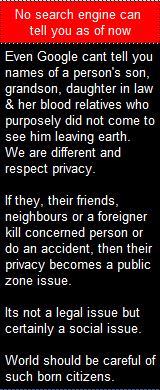 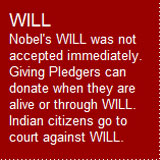 |











